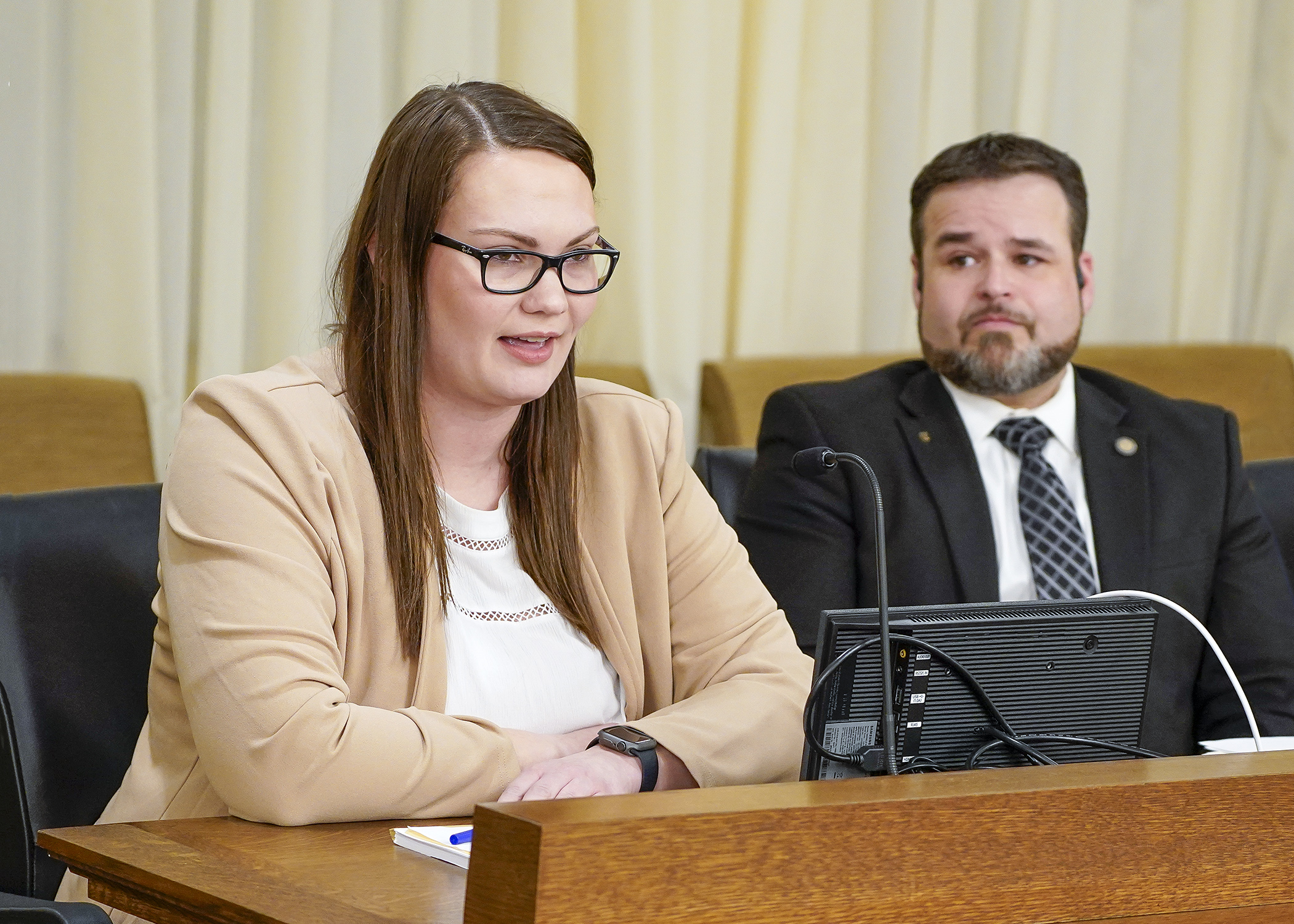State needs more efficient environmental permitting to be competitive, bill proponents say
DISCLAIMER: On Jan. 24, 2025, the Minnesota Supreme Court held that 68 members are necessary to constitute a quorum of the House. This webpage may reflect proceedings that occurred before that decision was issued and are no longer active. See Simon v. Demuth, No. A25-0066 (Minn. Jan. 24, 2025) (consolidated with Hortman et al. v. Demuth et al., No. A25-0068).
Rep. Josh Heintzeman (R-Nisswa) says he just might spend more time outdoors than any other legislator.
“It is absolutely critical that we have clean water in the lakes area, that we have clean air, and that we are not polluting the land that we live in,” he said while touting his love of the outdoors and his desire to protect outdoor recreation in the lake-rich area surrounding his home base.
But he said businesses needing environmental reviews and permits to operate in Minnesota are hampered by unnecessarily lengthy and burdensome permitting processes by the Minnesota Pollution Control Agency.
 Lauren Servick testifies on behalf of the Minnesota Pork Producers Association Jan. 23 before the House environment committee in support of a bill sponsored by Rep. Josh Heintzman, right. (Photo by Andrew VonBank)
Lauren Servick testifies on behalf of the Minnesota Pork Producers Association Jan. 23 before the House environment committee in support of a bill sponsored by Rep. Josh Heintzman, right. (Photo by Andrew VonBank)He sponsors HF8 to modernize existing regulatory systems and make them more efficient while still protecting the environment.
“This bill does not lower or relax any existing standards,” he told the House Environment and Natural Resources Finance and Policy Committee, which he chairs.
Approved, as amended, by the committee Thursday, the bill next goes to the House Workforce, Labor, and Economic Development Finance and Policy Committee.
Groups in support of the bill echoed Heintzman’s sentiment that businesses are hampered by onerous and lengthy permitting procedures.
“Minnesota’s farmers and agribusinesses remain stymied in their growth potential as Minnesota continues to be a difficult place to grow and develop businesses,” said Lauren Servick, director of public policy strategy and sustainability at the Minnesota Pork Producers Association. “The review process can also be frivolously delayed, at times even halting a project altogether.”
The bill would limit extensions from a 60-day time limit that a local unit of government must make certain determinations under the Wetland Conservation Act to one extension that could not exceed 60 days.
To be more efficient, the PCA would be required to issue separate permits for construction and operation of certain facilities and be required to issue these permits in a manner that minimizes the time required to construct and begin operation.
No one testified against the bill, but the Minnesota Center for Environmental Advocacy submitted a letter outlining objections to several aspects of the bill, including the requirement the PCA issue separate construction and operation permits.
“This creates regulatory uncertainty,” it reads, citing situations where “an applicant receives a construction permit but cannot secure an operation permit from the agency, or where a fully constructed facility has its operation permit reversed by a court.”
Ombudsman for business permitting
The bill would also require the Department of Employment and Economic Development to appoint an ombudsman for business permitting to assist businesses with obtaining permits necessary for operating in the state and providing free confidential help with permitting-related problems and grievances.
An important function of the ombudsman, per the bill, would be “investigating and assisting in resolving complaints and disputes from businesses against state or local authorities.”
Small businesses in particular need help “getting through the bureaucracy of a permit,” Heintzeman said.
Related Articles
Search Session Daily
Advanced Search OptionsPriority Dailies
Speaker Emerita Melissa Hortman, husband killed in attack
By HPIS Staff House Speaker Emerita Melissa Hortman (DFL-Brooklyn Park) and her husband, Mark, were fatally shot in their home early Saturday morning.
Gov. Tim Walz announced the news dur...
House Speaker Emerita Melissa Hortman (DFL-Brooklyn Park) and her husband, Mark, were fatally shot in their home early Saturday morning.
Gov. Tim Walz announced the news dur...
Lawmakers deliver budget bills to governor's desk in one-day special session
By Mike Cook About that talk of needing all 21 hours left in a legislative day to complete a special session?
House members were more than up to the challenge Monday. Beginning at 10 a.m...
About that talk of needing all 21 hours left in a legislative day to complete a special session?
House members were more than up to the challenge Monday. Beginning at 10 a.m...